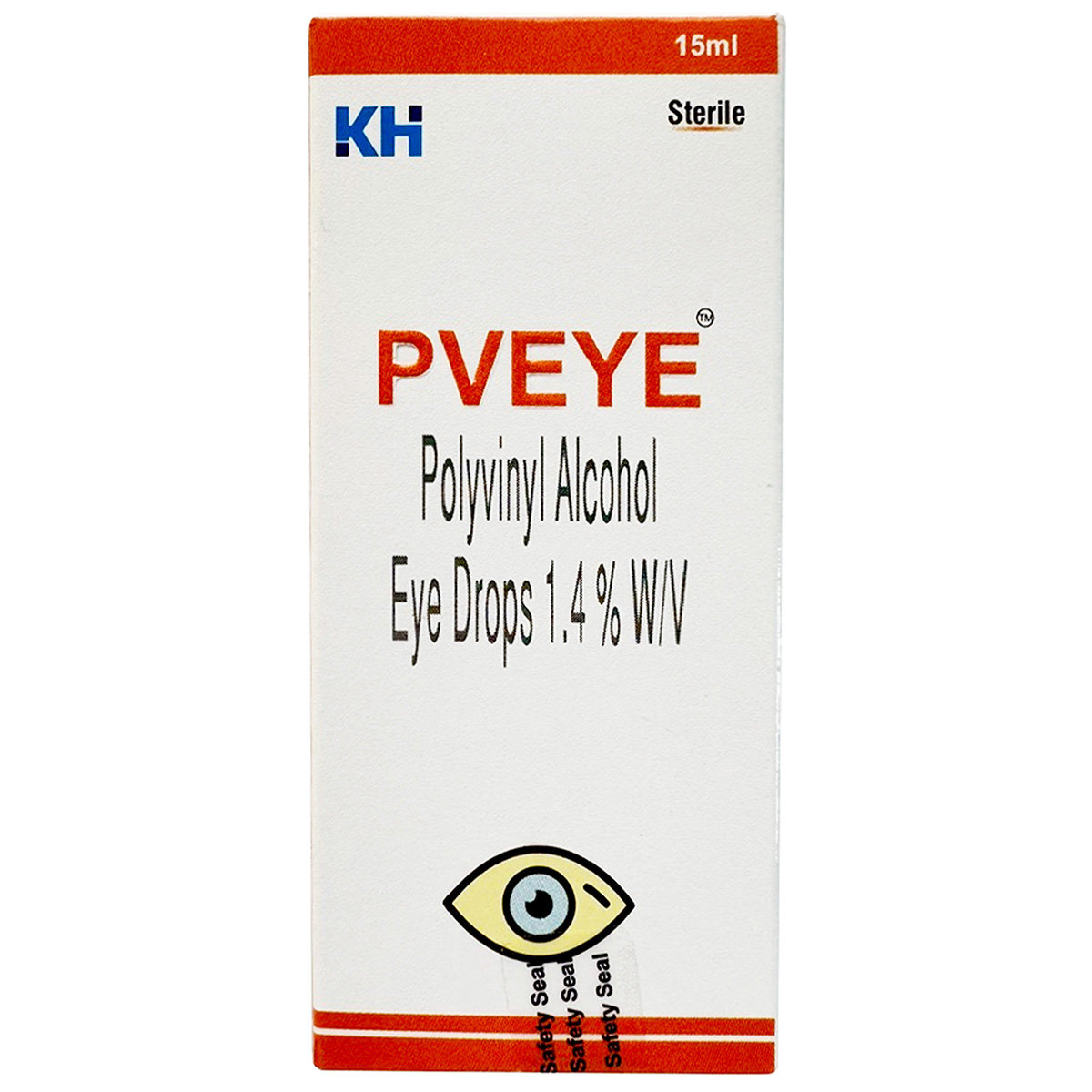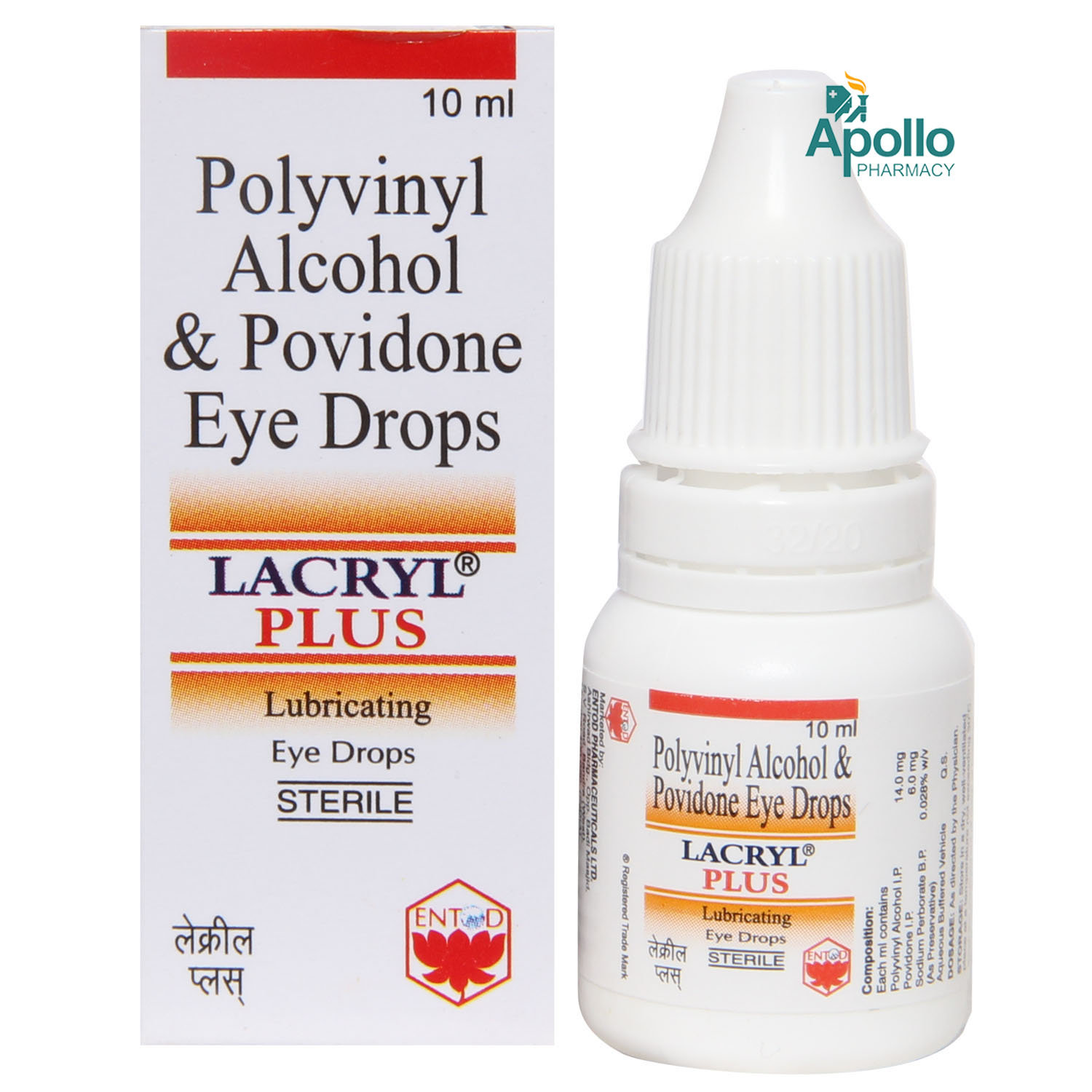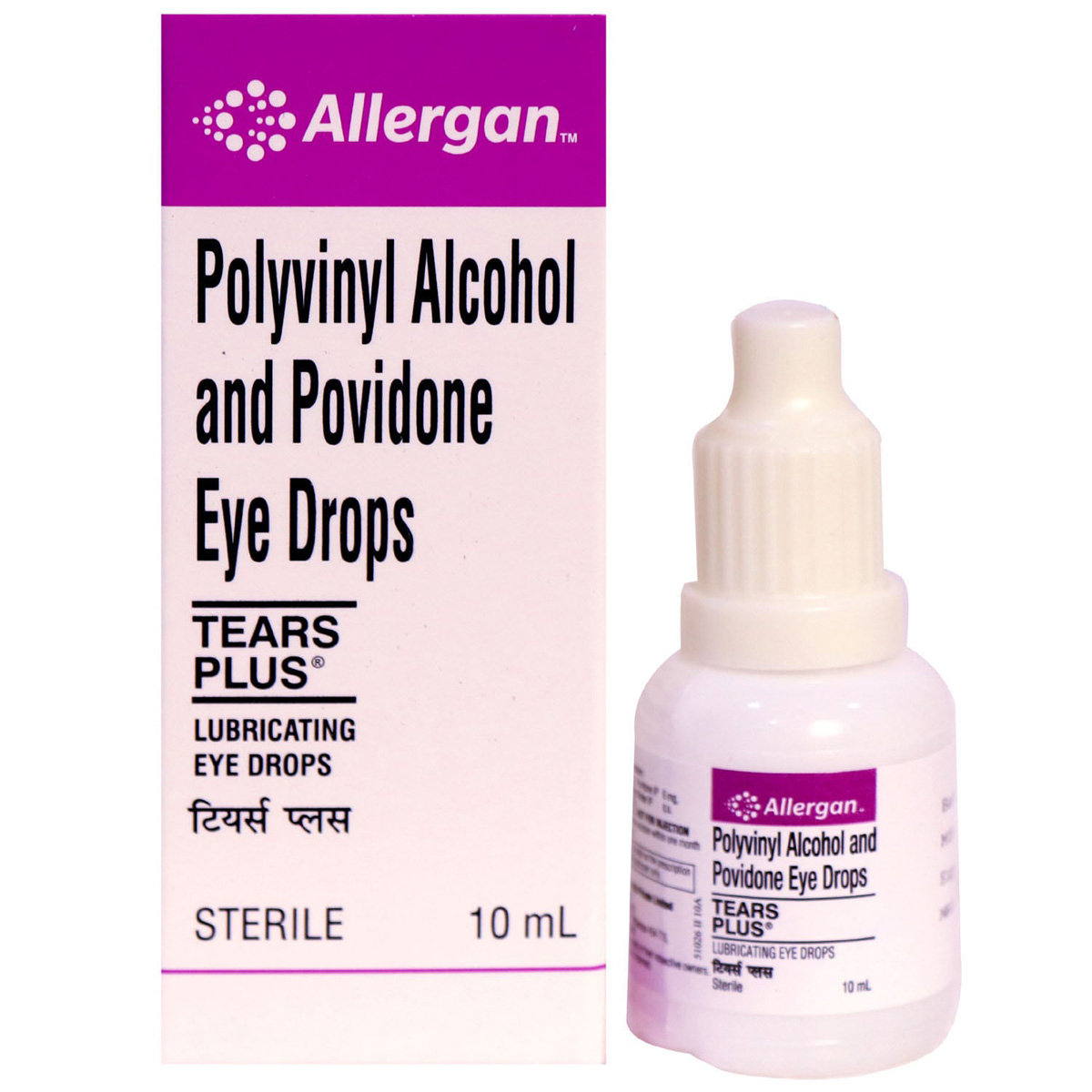Polyvinyl Alcohol
About Polyvinyl Alcohol
Polyvinyl Alcohol is used to treat dry eyes. Dry eye(s) is a condition in which the eye fails to make enough tears to coat it, which exposes the cornea and conjunctiva (outer coverings of the eye) to evaporation and subsequent damage. Wind, sun, heating/air conditioning, computer use/reading, and some drugs are common causes of dry eyes.
Polyvinyl Alcohol contains Polyvinyl Alcohol, an eye lubricant known as artificial tears. It works similarly to natural tears and provides temporary relief from burning and discomfort due to the eye's dryness by maintaining proper lubrication of the eyes and acting as a protectant against further irritation.
You are advised to take Polyvinyl Alcohol as recommended. The most common side effects of Polyvinyl Alcohol are temporary irritation, pain, and blurred vision. They do not require medical attention and gradually resolve over time. However, if the side effects are persistent, reach out to your doctor.
Polyvinyl Alcohol is for external use only. Never encourage self-medication or suggest your medicine to someone else. If you wear contact lenses or are wearing them, remove them before using Polyvinyl Alcohol, and you can put them back 15 minutes after using Polyvinyl Alcohol. Inform your doctor if you are pregnant, breastfeeding, allergic to this medicine, or taking any other medication. It is advised not to drive or operate heavy machinery after using this medicine as it may cause blurring of vision and affect your ability to drive.
Uses of Polyvinyl Alcohol
Medicinal Benefits
Polyvinyl Alcohol is an eye lubricant, also known as artificial tears. It works similarly to natural tears and provides temporary relief from burning and discomfort due to the eye's dryness by maintaining proper lubrication of the eyes and acting as a protectant against further irritation.
Directions for Use
- Follow your doctor's instructions on the dosage and timing of this medication.
- Tilt the head back, pull down the lower eyelid, and squeeze the suggested number of drops.
- Do not touch the container tip to the eye, eyelids, or surrounding areas to prevent contamination.
- Polyvinyl Alcohol is only for ophthalmic use.
Storage
Side Effects of Polyvinyl Alcohol
- Irritation in eye
- Continued eye redness
- Pain in eye
- Blurred vision
- Redness of the eye
Drug Warnings
Do not take Polyvinyl Alcohol if you are allergic to any of its ingredients. Inform your doctor if you are pregnant, breastfeeding, allergic to this medicine, or taking any other medication. It is advised not to drive or operate heavy machinery after using this medicine as it may cause blurring of vision and may affect your ability to drive. To avoid contamination, do not touch the tip of the container to any surface. Replace the cap after use. If you experience eye pain, vision changes, continued redness, or irritation of the eye. If the condition worsens or persists for more than 72 hours, discontinue use and consult a doctor.
Drug Interactions
Drug-Drug Interactions: No interactions found.
Drug-Food Interactions: No interactions found.
Drug-Disease Interactions: No interactions found.
Drug-Drug Interactions Checker List:
Safety Advice

Alcohol
not applicableNo interaction was found with alcohol.

Pregnancy
safe if suggestedDue to the negligible systemic exposure and the lack of pharmacological activity, Polyvinyl Alcohol can be used safely in pregnancy if recommended by your doctor.

Breast Feeding
safe if suggestedDue to the negligible systemic exposure and the lack of pharmacological activity, Polyvinyl Alcohol can be used during pregnancy only when a doctor recommends it.

Driving
cautionPolyvinyl Alcohol may cause transient blurring of vision, which may impair your ability to drive or operate machines. Patients should wait until their vision has cleared before driving or using machinery.

Liver
not applicableIt can be safely taken, and Polyvinyl Alcohol usually does not affect the liver.

Kidney
not applicableIt can be safely taken, and Polyvinyl Alcohol usually does not affect the Kidney.

Children
safe if suggestedPolyvinyl Alcohol can be given safely to children. However, please consult a doctor before giving Polyvinyl Alcohol to children.
Habit Forming
Diet & Lifestyle Advise
- Always use clean towels or tissues to wipe your eyes and face.
- It's essential to wash and change pillowcases regularly. This simple step is necessary for maintaining good eye hygiene and preventing potential eye infections.
- Suppose you wear contact lenses; clean and replace them more often. Never share contact lenses, and always remember to wash your hands before inserting the contact lens.
- Avoid staring at digital screens for longer durations. Rest your eyes every 20 minutes.
- Blink regularly as it helps spread hydrating substances such as mucus and tears across the eyes.
Special Advise
If the solution changes colour or becomes cloudy, do not use it.
Patients Concern
Disease/Condition Glossary
Dry eye(s) is a condition in which the eye fails to make enough tears to coat it, which exposes the cornea and conjunctiva (outer coverings of the eye) to evaporation and subsequent damage. Wind, sun, heating/air conditioning, computer use/reading, and some drugs are common causes of dry eyes.
FAQs
Polyvinyl Alcohol belongs to the group of 'ophthalmic medication,'Â primarily used to treat dry eyes.
Polyvinyl Alcohol is an eye lubricant, also known as artificial tears. It works similarly to natural tears and provides temporary relief from burning and discomfort due to the eye's dryness by maintaining proper lubrication of the eyes and acting as a protectant against further irritation.
No, you should not use Polyvinyl Alcohol if you are wearing contact lenses. If you wear contact lenses or are wearing them, remove them before using Polyvinyl Alcohol, and you can put them back 15 minutes after using Polyvinyl Alcohol.
No, Polyvinyl Alcohol should not be used simultaneously with other eye medications. At least a gap of 5 to 10 minutes should be there between using two eye medications.
Yes, the use of Polyvinyl Alcohol can cause blurry vision for the short term. So, please do not drive or operate any car or machinery requiring concentration to avoid mishaps.
Polyvinyl Alcohol causes side effects such as irritation in the eye, continued eye redness, pain in the eye, blurred vision, and redness in the eye. Most of these are temporary and do not require any medical attention, as they will gradually reduce over time. Please, contact a doctor if these persist for longer durations.
Store Polyvinyl Alcohol below 25°C in a cool and dry place as advised on the label. Protect from light and moisture. Keep it out of reach of children.
Polyvinyl Alcohol is for ophthalmic use only. Wash your hands thoroughly before and after applying Polyvinyl Alcohol. Lie down and tilt your head back. Gently pull your lower eyelid with your index finger to create a small pocket. Place the suggested number of drops into the pocket of the lower eyelid. Close your eyes for 1-2 minutes. Avoid allowing the tip of the container to come into contact with your eye, eyelids, or surrounding areas to prevent contamination of the drops.
Polyvinyl Alcohol is generally considered safe for external use and is not harmful. However, some patients may experience side effects such as eye irritation (burning and discomfort), eye pain, itching, or visual disturbances. If any of these symptoms persist, contact your doctor immediately.





